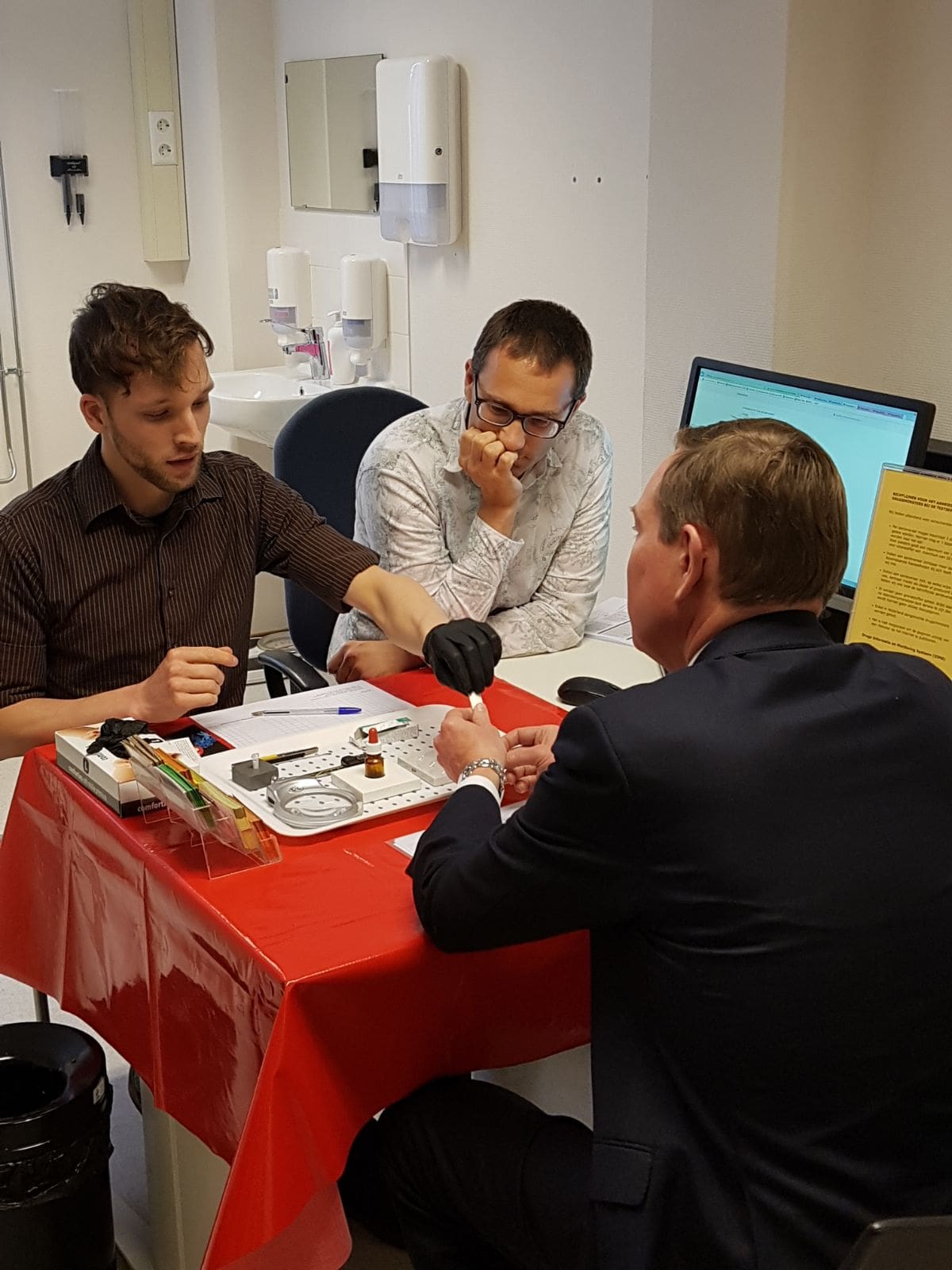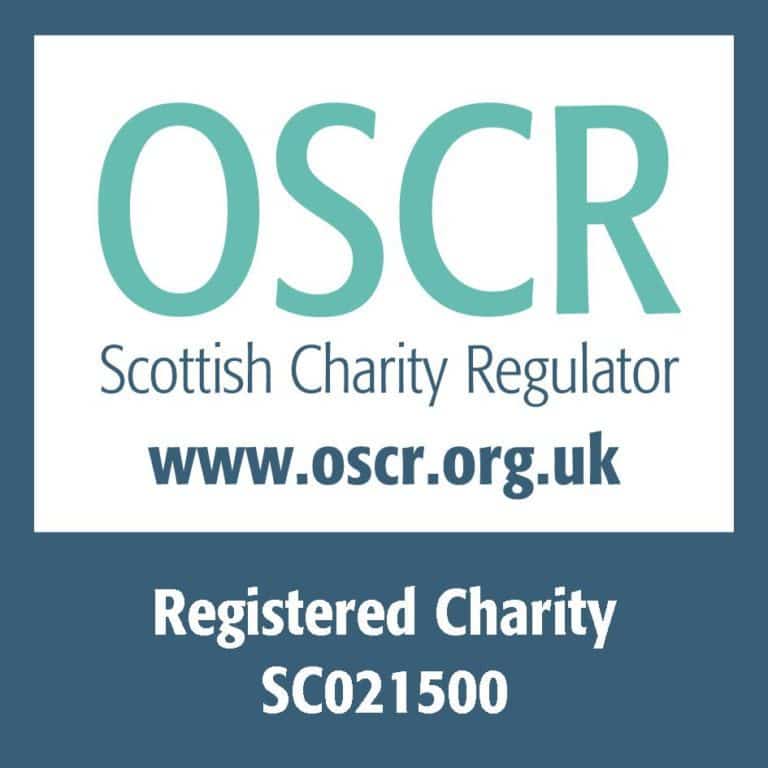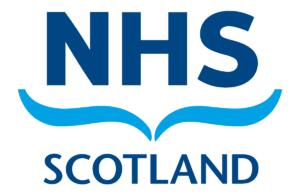Want to know more about drug checking? Our friends from Energy Control in Spain, Jellinek in the Netherlands and The Loop in the UK have shared their insights into running drug checking services. We’ve put together this blog to share their experiences and how Scotland can learn from them.
What is a drug checking service?
Drug checking is a harm reduction service that offers the opportunity for people to have a sample of drugs forensically analysed, and then receive feedback on the results tailored to their knowledge and history of drug use.
There are many examples of drug checking services around the world, and in recent years there has been increasing coverage in the UK media about drug checking. Pop up drug checking events have also appeared at festivals and in city centres in England from Durham in the North, down to Bristol in the South West.
Harm Reduction
The first drug checking service can be traced back to the halcyon days of free love when counter-culture and acid were the talking point of the time. During a 1960s mass street parade in California, drug checking was first offered in response to the circulation of LSD tabs that were causing unexpected effects. In order to reduce the risk of people consuming a product that was not what they expected people were offered the chance to find out what was in their tabs. However, a public drug checking service did not emerge until a few decades later.
In response to increased drug use and drug-related harm, the first publicly funded and accessible drug checking services were established in the Netherlands. After ‘DIY’ drug checking at raves in the late 80s and early 90s, the Dutch health service concluded there was a benefit to establishing a formal service, integrated into their other health focused drug services.
Testing was formalised in 1992, when the Drugs Information and Monitoring System (DIMS) was launched to monitor the drug market and reduce the harms associated with drug use. This system benefits people who take drugs, as they can access credible information about the drugs they already plan to take and it also allows the government to monitor drug markets and respond to drug use trends.
Today, the Dutch Government provides one million euros of funding each year, allowing drug testing services to operate in cities across the country. People pay a few euros to cover the cost of the test and can often get their drug tested within an hour or two, depending on the drug. Most drug checking services will have an in person drop-off point where people can submit a sample. Some organisations offer a postal service.
In Spain, the main service offering drug checking is Energy Control. Normally, Energy Control set up their drug checking services at events as well as offering their permanent spaces in various locations across Spain. At the moment they are not operating in festival and nightlife spaces due to the pandemic. In addition to their local service, they offer an international postal service allowing people to send any substances of concern to the labs in Spain.
Mireia Ventura is the Coordinator of the drug checking services at Energy Control and is the Manager of the Trans-European Drug Information (TEDI) Project. She explains that services have had to adapt in response to the pandemic,
“There are currently only two ways to access drug checking services: in person at the drop-in centres or by post, although this is only possible in some countries. Other drug checking services, such as Checkit! from Austria, have since the COVID-19 pandemic facilitated the delivery of drugs for checking to pharmacies. We hope that we will soon be able to roll out our mobile testing services to test at festivals again.”
How are drugs tested?
 Raoul and Willem showing the Dutch Health Minister how the testing service in Amsterdam operates. Photo Credit: Jellinek
Raoul and Willem showing the Dutch Health Minister how the testing service in Amsterdam operates. Photo Credit: Jellinek
Raoul Koning is a Prevention Worker for the health authority Jellinek that delivers the checking service in Amsterdam where they have drop-in services at fixed sites. He explains the advanced methods used by the service to identify the contents of a drug sample,
“With the FTIR (Fourier-transform infrared) spectrometer we can analyse MDMA, amphetamine and ketamine only at the moment. Which is very useful when it is very busy. It takes the pressure off the lab.
Sometimes people expect a result immediately, while the whole procedure from handing it in, till the result from the lab takes a week. So sometimes we have to disappoint people that they won’t get the results right away. At the location in Amsterdam we use an FTIR spectrometer. Our lab uses GC-MS and LC-DAD.”
Gas Chromatography–Mass Spectrometry (GC-MS) and Liquid Chromatography (LC-DAD) are methods for separating and identifying chemical compounds using advanced (and expensive) pieces of scientific lab equipment that allow for high accuracy in results.
Advanced methods such as GC-MS and LC-DAD are required for certain drugs, particularly drugs that are very potent (active in very small quantities) such as benzodiazepines. This advanced testing usually takes longer, so full results cannot be offered immediately – for example most pop-up services operating at festivals won’t be able to offer on the spot benzodiazepine testing. Some drug checking services won’t offer the testing of organic compounds such as cannabis and magic mushrooms.
How is a drug checking service different to a drug testing service?
Drug checking and drug testing services both offer the opportunity to find out more about the contents of a drug. In most cases, both services will also offer the opportunity to find out information about purity or the dose contained.
An essential part of drug checking is the health intervention that is delivered by a trained worker or volunteer to the person who submitted the sample. During this intervention essential information on the drug, risks, effects and harm reduction can be discussed. This health intervention might not be offered by a drug testing service where the results are given by email, over the phone or posted online, without opportunity for discussion.
Drug checking involves drug testing with health intervention
Why is drug checking needed?
Drug checking services offer people the opportunity to check the contents of their drugs, check their knowledge about the risks of those drugs and check how risky their use of drugs might be with the overall aim of reducing drug harms.
Increasing drug-related harm was one of the driving factors that led Professor Fiona Measham to set up the first UK-based drug checking service, The Loop. Fiona had a long-standing career as an academic researcher, exploring social and health experiences in the night-time economy and leisure industry, when she realised that replicating the successful drug checking services already established in other countries could reduce drug-related harm in the UK, noting that,
“We have the highest drug-related death rate on record, the highest in Europe and the festival death rate is increasing here in the UK, so we all have to do more to address this.
I conduct annual surveys on drug and alcohol use at UK music festivals and we know from these that on average one in two festival-goers takes illegal drugs at some point over the weekend with half of these taking larger quantities of drugs than they normally take. So festivals are potentially high risk environments for drug-related casualties.”
The first publicly accessible drug checking service offered by The Loop was available at the Secret Garden Party festival in England in 2016.
The Loop also highlights that these services are often accessed by people who do not attend traditional drug services or people who are not experiencing problematic use. They found that only 3.6% of people accessing their service “had spoken previously with health professionals about their alcohol and other drug use.” For many, it will be the first time someone has a formal conversation about their drug use, and it is important that a non-judgemental and credible service is provided.
So, as well as the opportunity to find out more about the drugs, drug checking provides an opportunity to connect people into other services such as access to blood borne virus testing, pregnancy testing, safer sex items, naloxone, injecting equipment provision, counselling or any other forms of support. This may include signposting to other services such as mental health, housing, domestic violence or employment services.
Raoul says that in the Netherlands,
“The service is a part of an addiction care facility in most cities. So if people need to be referred for help with substance use it is easy. But that is not often necessary. Most people that use the service are recreational users. So it is mostly just some information that is needed.”
Drug warnings
Peer to peer information about ‘bad batches’ is a permanent feature of our drug scene – from the famous warning that circulated across Woodstock – don’t eat the brown acid – to the recycled alerts that infamously circulate festival camp sites across Scotland about ecstasy pills ‘with brown specks’ containing heroin. Without drug checking these warnings are often based on speculation or subjective personal experiences rather than chemical analysis. This has led to the spread of myths about being able to tell what is in a drug by the appearance, smell or taste.
Drug checking provides much-needed surveillance information on drug markets to allow for more current and accurate information, and a more informed and targeted response from organisations working with people who take drugs.
In Spain, all drug checking services are linked to their national focal point for reporting relevant adulterants and New Psychoactive Substances detected. Mireia highlights the benefits of linked services,
“In this way, we can share with all stakeholders such as the police and health services the new findings detected and the possible impact they can have on health.”
Is drug checking legal?
Drug checking services are not fully supported in many of the countries that they operate within. In the Netherlands, drug checking services are common place and the process for accessing them is straightforward hovever, despite many misconceptions, commonly used drugs are illegal to possess in the country. This includes ecstasy which is one of the most typical samples being tested. So why don’t the police arrest everyone accessing the service? Raoul explains that,
“We have an agreement with the police that they won’t interfere with the service. So they won’t arrest people that are coming to the drug checking service.”
Here in the UK there are some legal barriers to setting up services, as the Misuse of Drugs Act (1971) prohibits the possession of controlled drugs. As the people using the service would likely be in possession of a controlled drug, how can we ensure they can safely use the service without fear of arrest?
Multi-partner agreement is essential to get the services going and would involve the police, prosecution services and local authority area working together to agree on the service.
Fiona Measham explains that,
“Legal clarity, financial security and systemic commitment are lacking in almost all countries where drug checking currently operates, with the onus on small NGOs to operate in grey areas of policy and legislation in order to address drug-related harm, whilst also trying to develop an evidence base to build greater political support.”
With New Zealand recently updating their legislation in support of drug checking and a recent report to the UK Government urging the support of drug checking ahead of a busy festival season – the tide of change may bring increased support for this harm reduction intervention.
So could drug checking services reduce drug-related harm and emergencies in Scotland?
Professor Fiona Measham says – YES! Fiona and her team at The Loop have recently published a paper highlighting the key health outcomes from drug checking interventions they have delivered over the past few years,
“Over half of those who accessed the services disposed of substances identified as something other than what they had bought or expected, thereby reducing the risk of poisoning. Nearly half reduced their dosage and extended their consumption periods, thereby reducing the risk of overdose. This was particularly the case for those whose sample was a stronger than expected substance, with nearly three quarters taking less or not taking the substance at all.”
They also found that many people took the harm reduction information given to them during the feedback session on board and were still practicing the advice months later and making sure that their friends were aware of how to reduce the risk of the drugs they were taking too. Fiona explains the potential for drug checking to have a long-lasting impact,
“Harm reduction discussions continue within friendship networks both in person and through social media long after the testing and the festival have ended.”
With more than 30 years’ experience of drug checking being established in his country, Raoul has some advice for anyone setting up a similar service,
“Just start! You are delivering a great service. And listen to your visitors. There are lots of interesting stories to tell and many people to educate – good luck!”
Despite the potential legal and technical challenges of drug checking services, evidence shows implementing them can be effective in increasing drug and harm reduction literacy and improving access to other services, with new evidence showing that stronger adherence to harm reduction behaviours and positive health behaviour changes are also likely outcomes of accessing a service. We would welcome their wide implementation in Scotland.
Click here to read about the new Scottish drug checking project.





